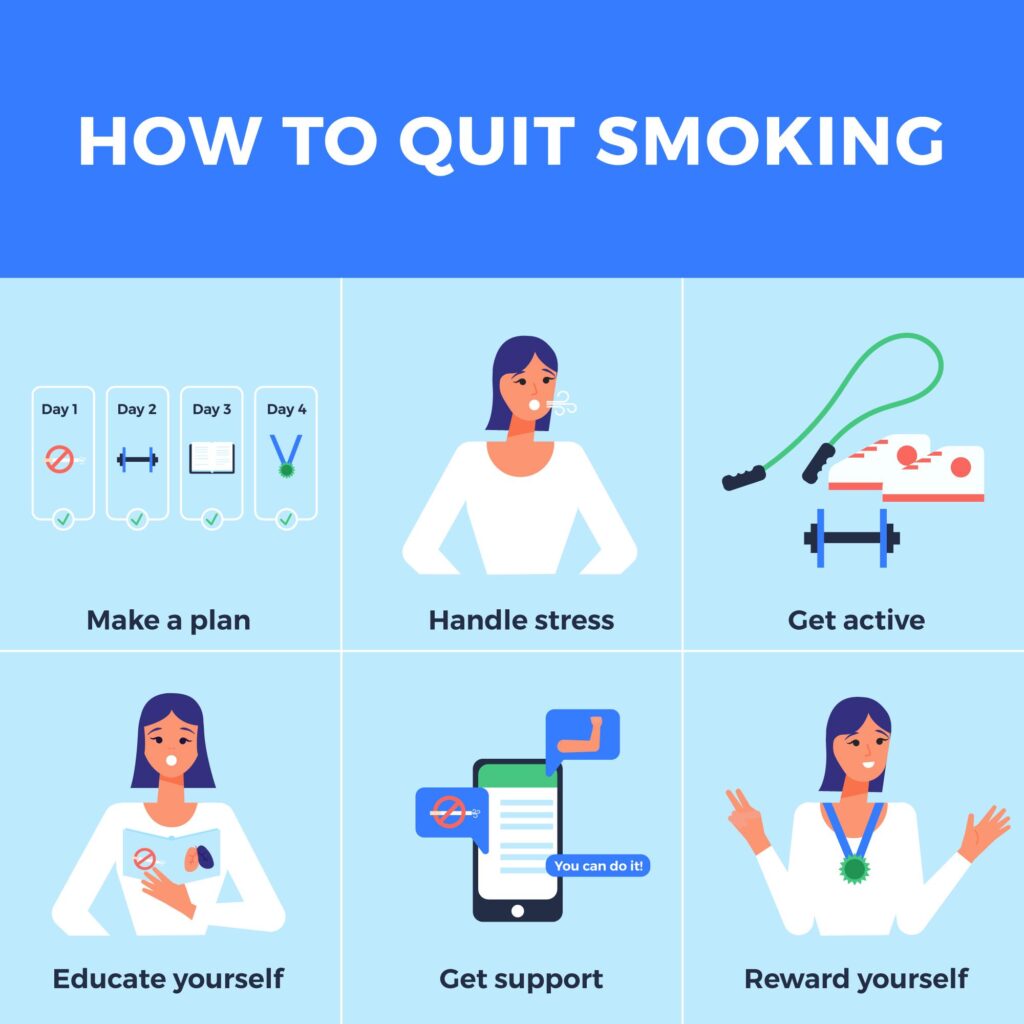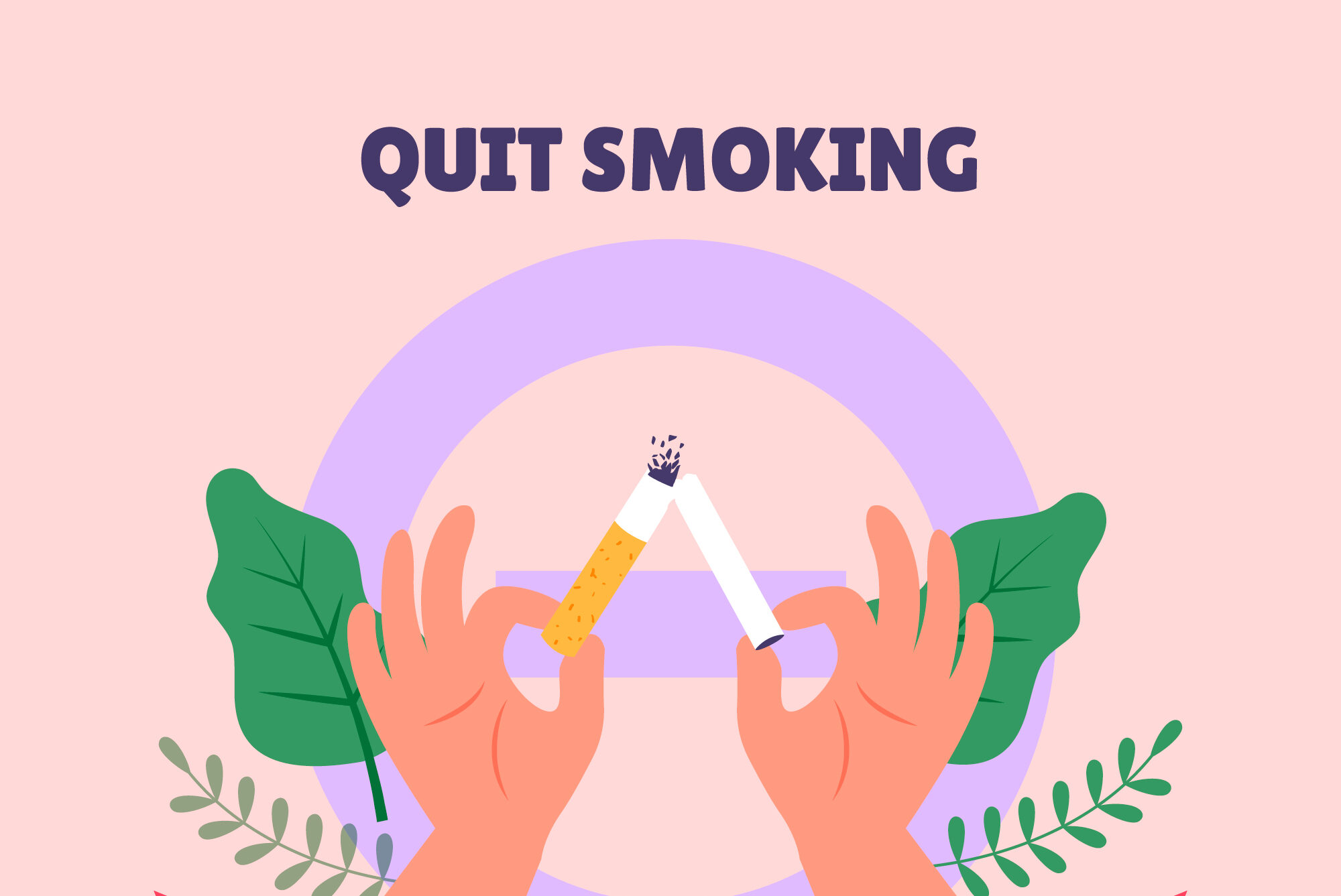Quit smoking is often termed as one of the biggest health decisions that a person can make. The process is not always smooth, but it is worth it; you will be able to breathe better, have a healthier heart, add years to your life and have some money saved. This guide outlines the reasons why you should quit smoking, the benefits you gain,
best ways to quit smoking, what happens to your body while quitting, and the products available that may aid the process. It also goes through ten proven techniques for breaking the habit for good. If you are looking to break your addiction to cigarettes and regain control in your life, the following steps will be clear, easy to understand, and motivating guidance.
Why should one quit smoking?
Smoking is the primary cause of death and illness in the world and it nearly doubles your risk for coronary heart disease. It increases your risk for various diseases and impacts negatively on anyone who is exposed to your smoke, which means they have exactly the same risks as you do to develop the conditions that will make their lives a misery down the line.
The cost of cigarettes over time can be shocking! The emotional toll is a big issue, because many smokers feel “hostage” to the cravings and cessation. Quit smoking will not only improve your health, but also reclaim your independence, protect your loved one, and recover your time and your finances, to use on more deserving and better activities.
Benefits of quitting smoking
The benefits of quitting smoking begin almost immediately. Within 10 minutes blood pressure, and pulse start to stabilise. Within hours, the blood carbon monoxide levels drop allowing oxygen to circulate more freely. Lung capacity gets better over the next weeks, blood circulation improves and daily tasks become less demanding. As time passes, that risk for a variety of conditions like stroke, heart disease, and cancer reduces. The proof of mental wellness is, further, the many ex-smokers who say they are less stressed out and do not have such irregular mood swings. If for no other reason than not smelling of smoking, social use as well as self-confidence will increase and eventually cost reductions.
What happens when someone quits smoking?
- The body repairs itself the very moment you quit smoking.
- Blood pressure, and heart rate and oxygen delivery is also improved right away (minutes – hours)
- Carbon monoxide in the blood drop, breathing eases and taste and smell begin to return after weeks;
- Weeks to months – coughing will decrease and lung function will improve leading to increased physical stamina.
- Risk of heart disease is cut in half within a year to 2 years, and the risk of stroke, cancer, and other smoking-related diseases diminish significantly over time.
- This does not occur without difficulties. In the beginning stages of detox, withdrawal symptoms can include irritability, restlessness, trouble sleeping and increased appetite. These symptoms generally hit hardest a few days before subsiding and disappearing altogether over several weeks, as the body slowly recovers.
Products that help with quitting:
A number of tools can help make quitting easier. Some of them are listed below:-
- Nicotine Replacement Therapy (NRT): Patches, gums, lozenges, inhalers and nasal sprays provide controlled doses of nicotine delivery without smoke; helping reduce nicotine withdrawal symptoms.
- Varenicline: Something that reduces the pleasure of smoking and hence works on nicotine receptors in the brain.
- Bupropion: It is used to help reduce the urges you may get after quitting.
- Fast-acting NRT: Covered in the section above, these are products like nasal sprays and inhalers which provide you immediate help when you have an intense craving.
- Novel agents: Agents such as cestain are currently being studied for their potential in aiding with cessation efforts.
- Psychological assistance: While psych drugs are less successful for smoking than illicit otc, other approaches do help: counseling and group support have been shown to increase success when given alongside medical aids.
Top 10 ways to quit smoking:

1. Choose a quit date and prepare
So pick a date that is within the next two weeks, and remove cigarettes, lighters, and ashtrays from your home and workplace.
2. Consider NRT or prescription help
Nicotine replacements or medication can make these cravings go away long enough to quit for good.
3. Build a support network
Tell friends, family and colleagues of the plan. Cultivating an engaging online or in-person support group can offer direction and keep you honest.
4. Avoid common triggers
Identify smoking triggers, like stress, alcohol, or particular social settings and develop smoke-free backup plans.
5. Stay busy and distracted
Go for a short walk, breathe some fresh air, have your own hobby or chew sugar-free gum when the cravings strike.
6. Track progress and reward milestones
Track the days you didn’t smoke and reward yourself as you reach milestones.
7. Manage withdrawal actively
Engage in some relaxation techniques such as meditation, practice deep breathing exercises, keep yourself physically active while ensuring that you follow a healthy sleep-wake cycle.
8. Combine strategies
If more than one method is tried, for example combining NRT with counseling, the success rate could be higher.
9. There will be setbacks, but do not give up.
For most people, it may take many times before eventually quitting. Take failures as lessons.
10. Keep the reasons in sight
Personal motivations may also be written and reminded of daily, from health to family to freedom keeps the fight going.
FAQs:
1. Can quit smoking extend life expectancy?
ANS: Quitting adds at least a decade of life and benefits accrue no matter when people give up.
2. How long does withdrawal last?
ANS: Cravings for cocaine or crack? Withdrawal symptoms peak during the second or third day and generally subside within two to four weeks. If you know what that means, really we mean a 22% chance: cravings might last forever.
3. Do you think a relapse is failure?
ANS: Not at all. The majority of ex-smokers have attempted to quit smoking many times before finally quitting for good. Each attempt brings valuable experience.
4.But can counseling and quit-smoking apps really assist?
ANS: Used with NRT or medication; these tools can multiply your chances of success.
Conclusion:
Quit smoking is not easy for anyone but it is worth it. The minute you decide to quit smoking, the body begins to heal- better breathing, stronger heart and lower risk of dangerous disease. It will take viability, determination and the necessary tools (ie medical aids, consultation or lifestyle changes) to get there. You will make mistakes, but small steps do not take away a big step forward. Every day without cigarettes is good for your life, health and energy. Now is the time to start for everyone who is ready to quit. In the end remember, it will not only be essential to you but also to your lovely family in the future. Say no to Smoking!
